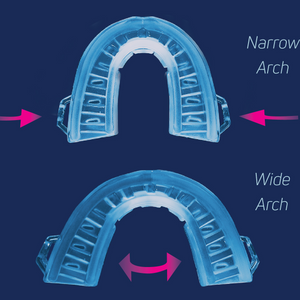May 24, 2023
Sleep Stages and Sleep Deprivation (Part 1)
Sleep is a fundamental need for people to achieve health and well-being. Much more than simply a passive state of inactivity, it involves stages of sleep which are requisite for us to rejuvenate fully our minds and bodies. Knowing about the sleep stages is important for understanding sleep disorders and how to improve sleep habits to enhance quality of life.
The two categories of sleep phases are REM sleep and Non-REM sleep. Non-REM sleep consists of three parts: N1, N2, and N3. Disrupting any of these stages of sleep by untimely awaking, snoring, or obstructive sleep disorder can cause varying degrees of sleep deprivation, limiting the constructive effects of optimal sleep on body and mind. The effects of good sleep include physical recovery from the previous day’s activities, bolstering the immune system’s ability to fight germs, and rejuvenating the mind’s ability to learn things, remember things, and think clearly.
NON-REM SLEEP
N1 STAGE OF SLEEP
The first stage is called N1, which begins when we close our eyes to fall asleep. In N1, our brains start making alpha and theta waves; these are slower than the normal, conscious brain waves. N1 phase feels like we are drifting in and out of sleep for about 5 to 10 minutes, and the body’s muscles relax.
N2 SLEEP STAGE
N2 sleep phase is where we fall deeper to sleep, and we spend nearly half the night in this stage. The body’s temperature drops, brain waves slow down slightly more than in N1, and we are preparing to enter the deeper stages of sleep.
N3 SLEEP PHASE
This is called Delta sleep and is deep enough to further slow down our breathing, blood pressure, and heart rate. This physiological process prepares us for REM sleep which follows N3. The N3 sleep stage is required to recover from the stresses of the previous day. It strengthens the immune system, revitalizes our minds, and consolidates memory and learning. In other words, N3 boosts our ability to remember things and fight diseases.
REM SLEEP
REM sleep gets more publicity because it is quite dramatic; eyes wiggle and vivid dreams occur, making it a fascinating phase of healthy sleep. REM sleep is an acronym for “Rapid Eye Movement” because the eyes twitch actively. During this important phase of sleep, the brain is very active, and breathing gets shallower and more irregular, while muscles are still and relaxed. Heart rate increases, and REM sleep can last about 90 minutes and occur a few times per night. It is critical to recovering and preparing mentally and physically for the next day.







